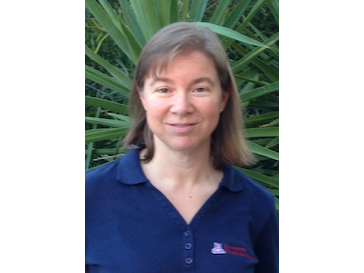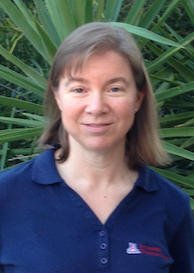- News
- Lecture from Professor Michelle Strout, University of Arizona on May 30
Lecture from Professor Michelle Strout, University of Arizona on May 30

Dates
Add to calendar0530
TUE 2017- Place
- Green Computing Systems Research and Development Center, Waseda University
- Time
- 13:00 - 14:30
- Posted
- Thu, 18 May 2017
| Date & Time | 30 May 2017 (Tuesday) 13:00 – 14:30 |
|---|---|
| Title | The Sparse Polyhedral Framework: Composing compiler-generated inspector-executor code |
| Venue | Green Computing Systems Research and Development Center, Waseda University (Map) |
| Target participants |
All Waseda students, faculty members, and the general public |
| Participant fee |
None |
Department of Computer Science
University of Arizona
USA
“The Sparse Polyhedral Framework: Composing compiler-generated inspector-executor code”
Abstract:
Irregular applications such as big graph analysis, material simulations, molecular dynamics simulations, and finite element analysis have performance problems due to their use of sparse data structures. Inspector-executor strategies are used to improve sparse computation performance through parallelization and data locality optimizations. An inspector re-schedules and reorders data at runtime, and an executor is a transformed version of the original computation that uses the newly reorganized data structures and schedules. Inspector-executor transformations are commonly written in a domain-specific or even application-specific fashion. Significant progress has been made in incorporating such inspector-executor transformations into existing compiler transformation frameworks, thus enabling their use with compile-time only transformations. However, composing inspector-executor transformations with each other is done on a case-by-case basis so as to reduce inspector overhead.
The Sparse Polyhedral Framework (SPF) is a compiler loop and array transformation model that can generally compose inspector-executor transformations with each other. In this talk, I review the history and current state of the art for inspector-executor strategies, review how the SPF enables the composition of inspector-executor transformations, and present current research to better balance the generality-performance tradeoff that is being done with the Sparse Polyhedral Framework.
Biography
- Tags
- Events

